TERMS
Original | Copy | Fact | Fiction | Sampling | Mashups | Appropriation
Original - That from which a copy, reproduction, or translation is made.
Ex
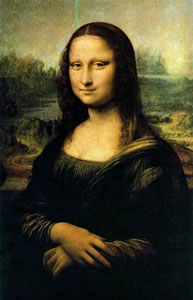
The Mona Lisa (well, you're viewing a "copy"
right now, but imagine you're at the Louvre
standing in front of the original painting).
^TOP^
Copy - An imitation, transcript, or reproduction of an original work (as a letter, a painting, a table, or a dress) something to be imitated.
Ex.

Mona Lisa stamp
Ex.
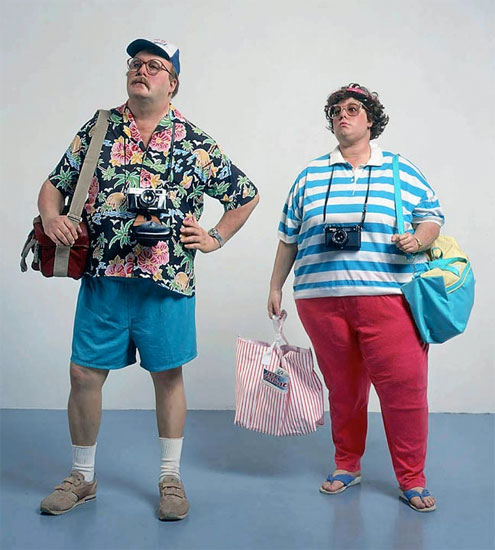
Scuptor Duane Hanson and an example of his incredibly life-like "copies" of the human form.
^TOP^
Fact - Something that has actual existence : a matter of objective reality.
Ex.

^TOP^
Fiction - Something invented by the imagination or feigned; specifically: an invented story.
Ex.

^TOP^
Sampling - In music, sampling is the act of taking a portion, or sample, of one sound recording and reusing it as an instrument or element of a new recording. This is typically done with a sampler, which can be a piece of hardware or a computer program on a digital computer. Sampling is also possible with tape loops or with vinyl records on a phonograph.
Ex.
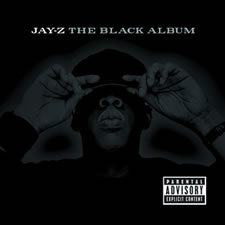

Danger Mouse released The Grey Album in 2004, which is a remix of The Beatles' 'White Album' and
rapper Jay-Z's The Black Album contains Beatles' track samples as well.
^TOP^
Mashups - History: First there were music mashups, where two or more tracks are combined, often with one acapella track by one artist over a second backing track by another.
The same principle is then brought to the Web 2.0 world, in the form of software mashups in which two or more sets of data are combined over the Internet to create a new entity. An example is overlaying houses for sale over a Google Map.
More recently, the video mashup has come of age thanks to the likes of YouTube. This is where videos from multiple sources are edited together into a new video. To date, many of these video mashups have been parodies, but even music mashups are being integrated to make combined audio-visual mashups.
Ex. Music Mashup
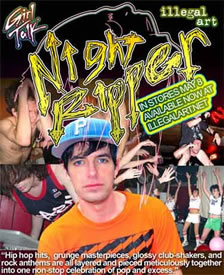
Girl Talk is the stage name of musician Gregg Gillis (born October 26, 1981). Gillis, who lives in Pittsburgh, Pennsylvania, has released four LPs on Illegal Art and EPs on 333 and 12 Apostles. He began making music while studying Biomedical Engineering at Case Western Reserve University. He specializes in mash-up style remixes, in which he uses often a dozen or more unauthorized samples from different songs to create a new song; The New York Times Magazine has called his music "a lawsuit waiting to happen." He also performs aerobics routines onstage. He has given different explanations for the origin of his stage name, once saying it alluded to a Jim Morrison poem and once saying it alluded to an early Merzbow side project.
^TOP^
Appropriation - To appropriate something involves taking possession of it. In the visual arts, the term appropriation often refers to the use of borrowed elements in the creation of new work. The borrowed elements may include images, forms or styles from art history or from popular culture, or materials and techniques from non-art contexts. Since the 1980s the term has also referred more specifically to quoting the work of another artist to create a new work. The new work may or may not alter the original.
Ex.
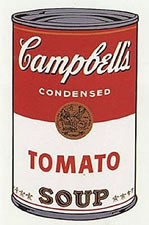
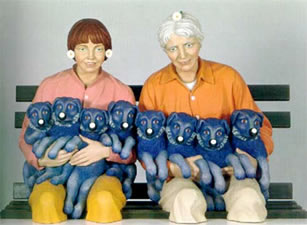
left: Andy Warhol | right: Jeff Koons
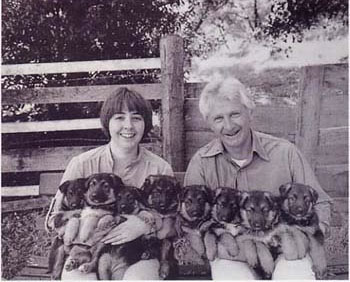
The original image Koons appropriated. Koons took this image off a card
licensed by the photographer and reproduced it. He was sued and the court
found that it was copyright infringement.
^TOP^